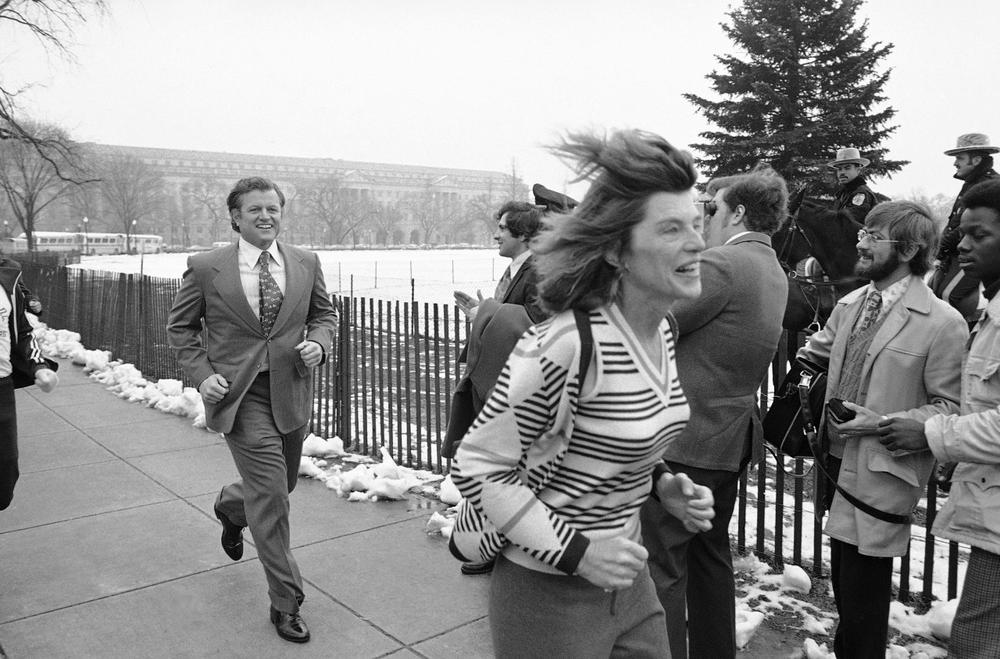Advertisement
Mass. Special Olympics Chief: Shriver Was 'Vigorous' In Her Dedication To Cause
Resume
Eunice Kennedy Shriver has died at Cape Cod Hospital. The 88-year-old sister of Sen. Ted Kennedy and President John F. Kennedy died at about 2 a.m. Tuesday. She's been hospitalized for the past week after suffering a series of strokes.
A statement from the Kennedy family says "we have always been honored to share our mother with people of goodwill the world over who believe, as she did, that there is no limit to the human spirit." Mrs. Shriver is perhaps best known as founder of the Special Olympics, an organization she founded in 1968 in part because of her mentally disabled sister Rosemary.
Bob Johnson, president and CEO of the Massachusetts Special Olympics, joined us to discuss Eunice Kennedy Shriver's life.
Deborah Becker: Thanks very much for speaking with us on a sad day.
Bob Johnson: It's a very sad day indeed. Thank you.
Tell us how you came to know Eunice Kennedy Shriver.
Well I had the honor and pleasure of meeting her on several occasions. I can tell you that on each occasion, whenever anybody meets Mrs. Shriver, they go away with renewed inspiration for a call to action, a desire to improve the lives of people with intellectual disabilities, and certainly I'm proud to count myself among those.
Can you describe for us what type of person she was in a story — a personal story — that you remember after coming in contact with her?
Well she was a vigorous individual who was constantly working to improve the lives of people with intellectual disabilities. Rarely did you have a light moment with her, she was one who spent most of the time and took most opportunity to bring about a call to action or to ask pointed questions about how we could make the Special Olympics experience better.
She was determined to make it the best organization she possibly could and she was determined to have it have a profound impact on individuals with intellectual disabilities and all who work or live with them.
Why did she start the Special Olympics?
I believe that she started it because she wanted to prove to the world that people with intellectual disabilities can do more than they can't do and are in fact more like us than unlike us.
And I think over the 41 years that Special Olympics has been in existence, certainly that has been one of the most important elements of the organization: educating as many people as possible to the strengths of people with intellectual disabilities.
You say "intellectual disabilities." Why is that?
I think what's happened over the years is the "r" word, as we put it, has really become a bit of a pejorative. And we — a few years ago — actually working with our athletes, asked them, as I said earlier, to try to listen and listen very keenly.
And our athletes are offended by the term that begins with "r," which I'm not going to repeat. And suggested to us that a better term, a more acceptable term, would be that of intellectual disability.
And is that something in part taken on by Eunice Kennedy Shriver?
Absolutely.
This program aired on August 11, 2009.
